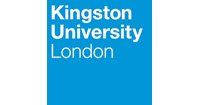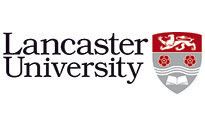
Quality Management in Projects
Course ID: 2507210101335ESH
Course Dates : 21/07/25 Course Duration : 5 Studying Day/s Course Location: London, UK
Language: Bilingual
Course Category: Professional and CPD Training Programs
Course Subcategories: Leadership and Management Excellence
Course Certified By: ESHub CPD & LondonUni - Executive Management Training
* Professional Training and CPD Programs
Leading to:
Executive Diploma Certificate
Leading to:
Executive Mini Masters Certificate
Leading to
Executive Masters Certificate
Certification Will Be Issued From :
From London, United Kingdom
Course Fees: £5,120.30
Vat Not Included in the price. VAT may vary depending on the country where the course or workshop is held.
Click to Pay
Date has passed please contact us Sales@e-s-hub.com
Course Information
Introduction
Quality management is an indispensable cornerstone of successful project execution, ensuring that deliverables meet or exceed stakeholder expectations while adhering to predefined standards and requirements. In industries ranging from construction and manufacturing to IT and healthcare, the ability to consistently deliver high-quality outputs has become a competitive differentiator. For professionals tasked with managing projects, mastering quality management principles is not merely an advantage but a necessity. This course delves into the methodologies, tools, and frameworks essential for embedding quality into every phase of a project lifecycle, addressing gaps in knowledge and practice that often lead to costly rework, delays, and client dissatisfaction.
One of the key challenges faced by project managers today is balancing competing priorities—time, cost, and scope—while maintaining quality. The absence of a systematic approach to quality management can result in fragmented processes, misaligned objectives, and subpar outcomes. For instance, a case study involving a large-scale infrastructure project revealed that inadequate quality planning led to significant delays and budget overruns due to non-compliance with safety regulations. By equipping participants with tools such as Total Quality Management (TQM) and Six Sigma, this course bridges these gaps, fostering a culture of continuous improvement and accountability.
The benefits of mastering quality management extend beyond individual skill enhancement to organizational resilience and growth. Organizations that prioritize quality report higher customer satisfaction, reduced operational risks, and improved profitability. A survey conducted by the Project Management Institute (PMI) highlighted that projects incorporating robust quality management practices are 2.5 times more likely to succeed than those that do not. Moreover, professionals who demonstrate expertise in quality management often enjoy enhanced career prospects, as they are better positioned to lead transformative initiatives and drive strategic goals.
This course draws on established theories and industry trends to provide a comprehensive learning experience. Concepts such as Deming’s Plan-Do-Check-Act (PDCA) cycle and Juran’s Trilogy serve as foundational pillars, offering participants a structured approach to problem-solving and process optimization. Additionally, the integration of modern technologies like Artificial Intelligence (AI) and data analytics into quality management systems underscores the evolving nature of the discipline, making it imperative for practitioners to stay abreast of emerging trends.
Real-world examples further illustrate the practical applications of quality management principles. Consider the automotive industry, where Toyota’s renowned Production System exemplifies how rigorous adherence to quality protocols can yield unparalleled efficiency and reliability. Similarly, software development teams leveraging Agile methodologies have demonstrated how iterative testing and feedback loops contribute to superior product quality. These anecdotes underscore the versatility and universal applicability of quality management across diverse sectors.
By enrolling in this course, participants will gain the skills and confidence needed to navigate the complexities of modern project environments. Whether you are a seasoned professional seeking to refine your expertise or a newcomer eager to establish a strong foundation, this program offers actionable insights and hands-on training designed to elevate your capabilities. Ultimately, the course aims to empower individuals and organizations to achieve sustainable success through the consistent delivery of high-quality projects.
Objectives
By attending this course, participants will be able to:
Analyze the core principles of quality management and their relevance to project success.
Evaluate existing processes within their organization to identify areas for improvement using frameworks such as TQM and Six Sigma.
Design a comprehensive quality management plan tailored to specific project requirements.
Implement quality assurance and control techniques to monitor and enhance project performance.
Apply statistical tools and data-driven methodologies to measure and improve quality outcomes.
Develop strategies for fostering a culture of quality and continuous improvement within teams.
Assess compliance with industry standards and regulatory requirements to mitigate risks.
Who Should Attend?
This course is ideal for:
Project managers, team leaders, and consultants responsible for overseeing project execution and delivery.
Quality assurance specialists and engineers seeking to deepen their understanding of quality management principles.
Professionals in industries such as construction, IT, healthcare, and manufacturing where quality is critical to success.
Individuals aspiring to transition into roles focused on project management or quality assurance.
The course is particularly valuable for intermediate learners who possess foundational knowledge of project management concepts but wish to specialize in quality management. It also serves as a refresher for advanced practitioners looking to update their skills in light of new methodologies and technological advancements.
Training Method
• Pre-assessment
• Live group instruction
• Use of real-world examples, case studies and exercises
• Interactive participation and discussion
• Power point presentation, LCD and flip chart
• Group activities and tests
• Each participant receives a 7” Tablet containing a copy of the presentation, slides and handouts
• Post-assessment
Program Support
This program is supported by:
* Interactive discussions
* Role-play
* Case studies and highlight the techniques available to the participants.
Daily Agenda
Daily Schedule (Monday to Friday)
- 09:00 AM – 10:30 AM Technical Session 1
- 10:30 AM – 12:00 PM Technical Session 2
- 12:00 PM – 01:00 PM Technical Session 3
- 01:00 PM – 02:00 PM Lunch Break (If Applicable)
- Participants are expected to engage in guided self-study, reading, or personal reflection on the day’s content. This contributes toward the CPD accreditation and deepens conceptual understanding.
- 02:00 PM – 04:00 PM Self-Study & Reflection
Please Note:
- All training sessions are conducted from Monday to Friday, following the standard working week observed in the United Kingdom and European Union. Saturday and Sunday are official weekends and are not counted as part of the course duration.
- Coffee and refreshments are available on a floating basis throughout the morning. Participants may help themselves at their convenience to ensure an uninterrupted learning experience Provided if applicable and subject to course delivery arrangements.
- Lunch Provided if applicable and subject to course delivery arrangements.
Course Outlines
Foundations of Quality Management
Introduction to quality management principles and frameworks.
Overview of Total Quality Management (TQM) and its applications.
Understanding the PDCA cycle and its role in continuous improvement.
Case study analysis: Lessons from Toyota’s Production System.
Day 2:
Tools and Techniques for Quality Assurance
Introduction to Six Sigma methodology and DMAIC framework.
Statistical tools for quality measurement and analysis.
Root cause analysis and problem-solving techniques.
Hands-on exercise: Identifying defects using Pareto charts.
Day 3:
Quality Control and Risk Management
Key components of a quality control plan.
Techniques for monitoring and measuring project quality.
Integrating risk management with quality assurance.
Group activity: Developing a risk mitigation strategy.
Day 4:
Compliance and Standards
Overview of ISO 9001 and other relevant quality standards.
Ensuring compliance with industry-specific regulations.
Auditing processes for quality assurance.
Interactive session: Conducting a mock audit.
Day 5:
Leadership and Culture of Quality
Strategies for fostering a culture of quality within teams.
Leadership skills for driving quality initiatives.
Measuring the impact of quality management on organizational performance.
Final workshop: Presenting a quality management plan.



















































